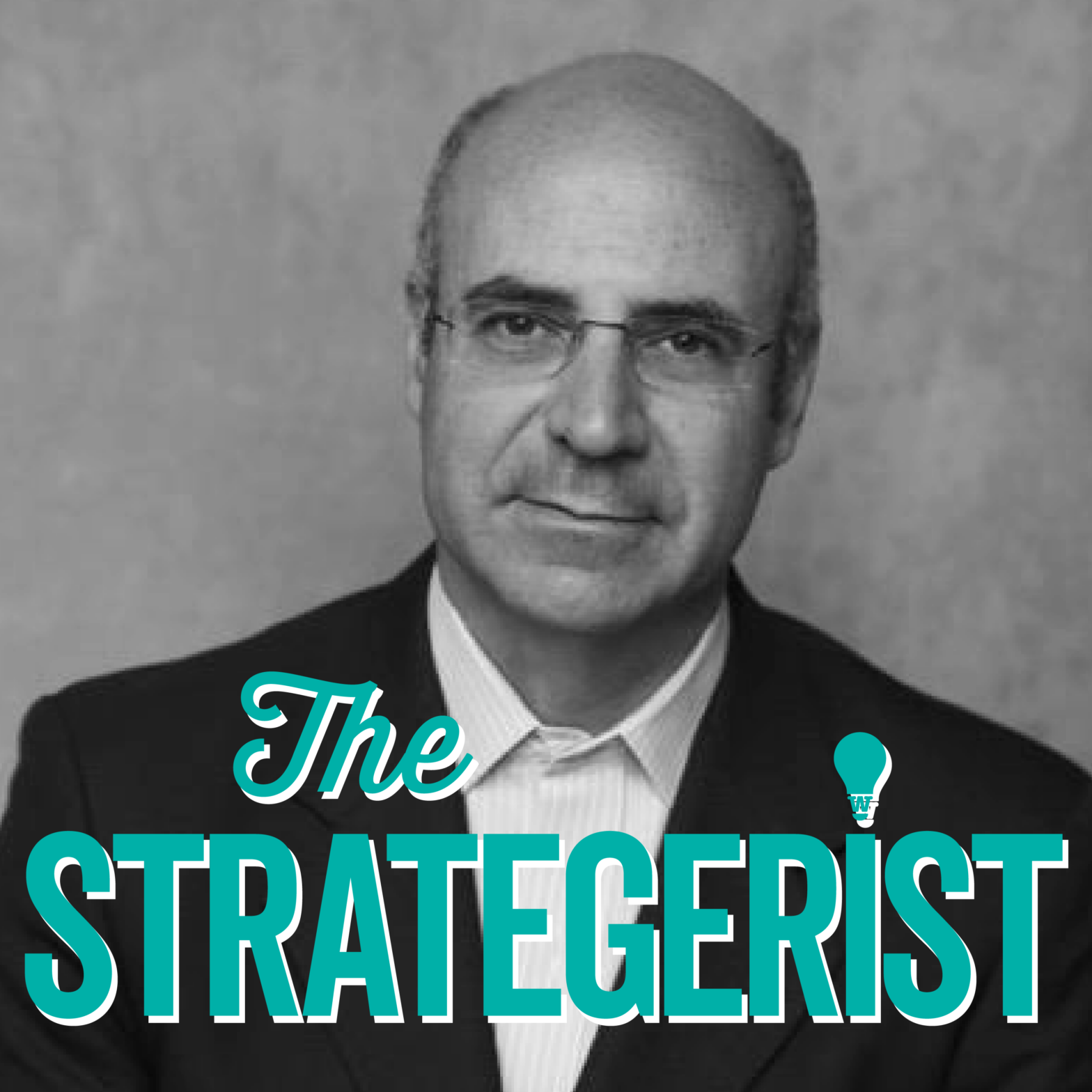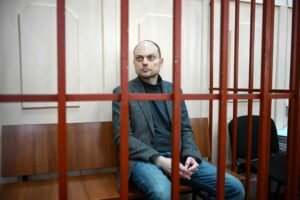Vladimir Kara-Murza, a pro-democracy Russian politician, was charged with high treason on Oct. 6. Russian authorities briefed Kara-Murza on the indictment in prison, where he has been detained since April on less severe charges.
The treason charge, which carries a possible 20-year sentence, is based on public remarks Kara-Murza made in Lisbon, Oslo, and Washington in which he criticized Russian President Vladimir Putin’s war in Ukraine, the legacy of Soviet political persecution in Russia, and the illegitimacy of Russia’s elections.
According to Russia’s Investigative Committee, these remarks “threatened the security and constitutional order of the Russian Federation” and “damaged the international reputation of the Russian Federation.” They gave Russia an “image as an aggressor state in the eyes of the international community.”
In response, Kara-Murza wrote self-deprecatingly from prison: “While flattered by the Investigative Committee’s assessment of my influence, I must admit that Putin has done a far better job on all three counts than I ever could.”
The contrast between Kara-Murza and Putin couldn’t be starker. Kara-Murza, 41, is a journalist turned politician. He is articulate, principled, and absolutely convinced that Russia will become a democracy. Kara-Murza is also heir to the generation of Soviet dissidents that includes Andrei Sakharov, Vaclav Havel, and Vladimir Bukovsky, his mentor, who was imprisoned in a Soviet psychiatric hospital as punishment for dissent. Kara-Murza reveres these individuals and sees their staunch dedication to the truth as a model for resisting the two wars he says Putin is waging – one in Ukraine and one on truth.
For his part, Putin laments the collapse of the Soviet Union and praises Soviet leader Joseph Stalin, whose legacy he is rehabilitating with distorted school curricula, statues, museums, and laws. Before coming to national power as prime minister in 1999, Putin’s career was devoted to service in the domestic and international security agency, the KGB. As prime minister, and later as president, he has strangled civil society organizations, gutted elections, and shuttered independent media, all the while bombarding the population with vile propaganda through state-controlled television.
Kara-Murza first ran afoul of Putin for supporting the U.S. Congress’ adoption of “Magnitsky sanctions.” Named after Sergei Magnitsky, a lawyer abused to death in jail for opposing official corruption, these visa bans and financial asset freezes target those determined to be grave violators of human rights. Magnitsky sanctions are tailored to penalize those involved directly in abuses, Kara-Murza wrote in 2012, these sanctions: “Avoided the mistake of targeting Russian citizens at large for the actions of a small corrupt clique in the Kremlin and placed responsibility directly where it is due. It was also the most effective approach. The people who are in charge of Russia today like to pose as patriots, but, in reality, they care little about the country. They view it merely as a looting ground, where they can amass personal fortunes at the expense of Russian taxpayers and then transfer those fortunes to the West.”
Far from being “anti-Russian” as Putin claims, Kara-Murza insists they are profoundly pro-Russian, putting the United States on the side of the Russian people victimized by corruption and brutality.
In September, Senators James Risch (R-Idaho) and Robert Menendez (D-New Jersey) asked the State Department to consider sanctions on those responsible for Kara-Murza’s arrest and persecution under the Magnitsky sanctions law.

Listen to the episode
Foreign aggression, assassination, war crimes
Putin’s domestic repression intensified with his decision to invade neighboring Ukraine – which he has done twice. The first invasion, in 2014, led to the annexation of Crimea. The second, which began in February 2022, has prompted multiple war crimes investigations into documented atrocities against Ukrainian civilians.
Kara-Murza understands the war in Ukraine as a pretext for eradicating opposition to his rule at home and to preventing a successful democracy from taking root in a neighboring country. He and other Russian democrats denounced Putin’s aggression.
One of them, Kara-Murza’s friend Boris Nemtsov, a former member of the Russian parliament who helped expose Putin’s corruption, was shot dead within yards of the Kremlin in February 2015. A few months later, Kara-Murza himself was the victim of a nearly fatal poisoning that left him in a coma – the first of two such attacks. Incredibly, he survived both, recovered abroad from their devastating effects, and then bravely returned to Russia at a time when many other Russians were leaving the country.
What to do? Stay true to America’s principles
Kara-Murza insists that it is up to him and his fellow citizens to change Russia, but that America undermines their efforts by straying from its values and enabling Putin and his regime. Specifically, he has urged the West to stop allowing Russian oligarchs to park their ill-gotten assets in European and American financial institutions, real estate, and other investments.
Kara-Murza also recommends an expansion of American, British, and other foreign broadcasting to break the monopoly on information inside Russia: “Nothing beats totalitarian propaganda better than the truth, and when the Soviet system collapsed it was, in my view, primarily because it has been discredited and delegitimized in the eyes of its own people who were able to see its true nature,” Kara-Murza told the Helsinki Commission in March. “If this was done with the technologies of the 1970s, it can certainly, be done today.”
Help Ukraine defend itself
Kara-Murza’s fate, and that of Russia’s democracy movement, are linked to the defense of Ukraine. Ukraine’s victory is also in America’s best interest, not only in Europe but also in Asia.
“Reducing Putin’s ability to threaten democracies in neighboring states as well as in his own country, sends a strong signal to other authoritarian regimes, especially the one in Beijing, that the democratic community of nations will not back down in defense of freedom and the concepts of sovereignty and territorial integrity,” wrote David J. Kramer, George W. Bush Institute Executive Director.
Advocate for Kara-Murza and other political prisoners

Read more
Kara-Murza, who went to high school and university in the U.K., holds dual British-Russian citizenship. He is also an American green card holder, and his family lives in the United States By jointly pressing for his release, the United States and U.K. would underscore the value they place on individual rights, including freedoms of association and speech.
For Americans, gaining Kara-Murza’s release and that of other political prisoners in Russia and elsewhere is not only a moral obligation but also a central part of the response to authoritarians’ challenge to universal values and norms. In short, until Kara-Murza and others like him are released, Washington and its democratic allies can’t do enough.




